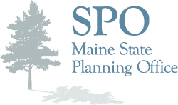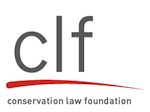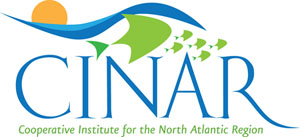By Melanie MacLean
Fisheries and Oceans Canada, Bedford Institute of Oceanography, Dartmouth NS.
Each of the following articles were produced by the author listed, and summarized by Melanie MacLean for the Gulf of Maine Times.
The Gulf of Maine is a dynamic, changing ecosystem. Bordered by the northeastern United States and the Canadian Maritime Provinces, the Gulf of Maine is one of the largest semi-enclosed coastal seas in North America. It is recognized as one of the world’s richest marine ecosystems with various marine and estuarine habitats, such as salt marshes, seagrass beds, tidal mud flats, underwater rocky outcrops, and kelp beds.
More than 10 million people live in the Gulf of Maine watershed. Along its western and northern shores lie the cities and towns of coastal Massachusetts, New Hampshire, Maine, New Brunswick, and Nova Scotia. The Gulf has supported a long tradition of fishing, marine transportation, coastal development, and recreation, and continues to be a valuable resource for the people who live and work in the region.
On 9 June 2010, the Gulf of Maine Council on the Marine Environment launched the State of the Gulf of Maine Report. The report is a living, web-based document that has been written as a series of issue or theme papers and is available at www.gulfofmaine.org/stateofthegulf.
The main objective of the State of the Gulf of Maine is to inform decision makers on the main issues affecting the Gulf. The aim is to provide the information in a form that is easily accessible and readable, without compromising scientific validity. It is currently being used to inform future action planning of the Gulf of Maine Council. It is hoped that the report will be used on an ongoing basis by a wider audience to inform government policy decisions, assist in municipal planning, and provide material for education and outreach for conservation of the Gulf.
The reporting framework is the driving forces-pressure-state-impacts-response (DPSIR) framework, which makes the linkages between the environment and socio-economic factors. It also lends itself most easily to reporting on an issue-by-issue basis, so that the pressures, state, impacts and responses are described for each issue in turn. Seven priority areas have been identified for the report, including: climate change; fisheries and aquaculture; coastal development; aquatic habitats; eutrophication; contaminants and biodiversity. The report also documents some of the emerging issues facing the region. The reports are written by subject matter experts and are peer reviewed. The overall reporting process is overseen by an editor-in-chief and editorial committee, drawn for membership of the Gulf of Maine Council.
This paper will provide an overview of some of the findings of the report, based on the issue papers that have been developed so far, including Climate Change and its Effects on Humans, Climate Change and its Effects on Ecosystems, Coastal Ecosystems and Habitats, Marine Invasive Species and Emerging Issues.
Summary of the theme papers developed as part of the State of the Gulf of Maine Report.
There are two theme papers that deal with climate change, Climate change and its effects on ecosystems, habitats and biota and Climate change and its effects on humans. The climate of the earth is changing, as a result of increases in greenhouse gas emissions (GHGs) from human activities. Although the natural release of greenhouse gases occurs, releases from human activities are consider the main drivers of climate change.
Climate change and its effects on ecosystems, habitats and biota
Written by Janet Nye, National Oceanic and Atmospheric Administration
Climate change and its effects on humans
Written by Dan Walmsley, Walmsley Environmental Consultants
Coastal ecosystems and habitats
Written by Kent Gustavson, Raidho Resource Consulting Ltd.
Emerging issues
Written by Peter Wells, International Ocean Institute and Faculty of Management, Dalhousie University



















